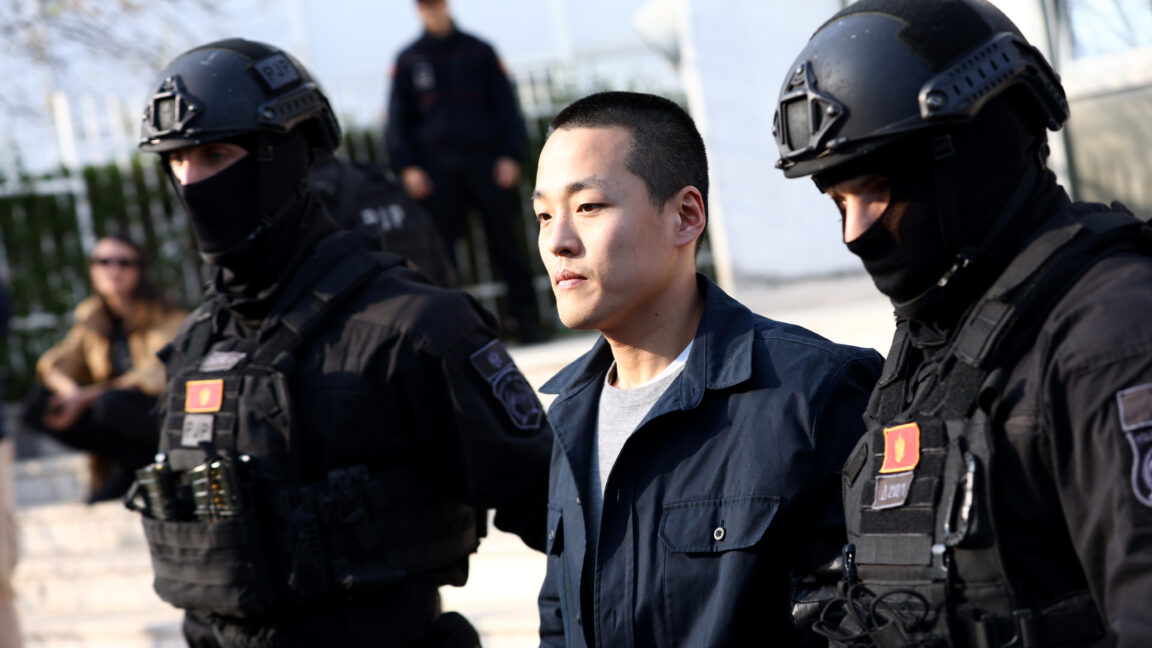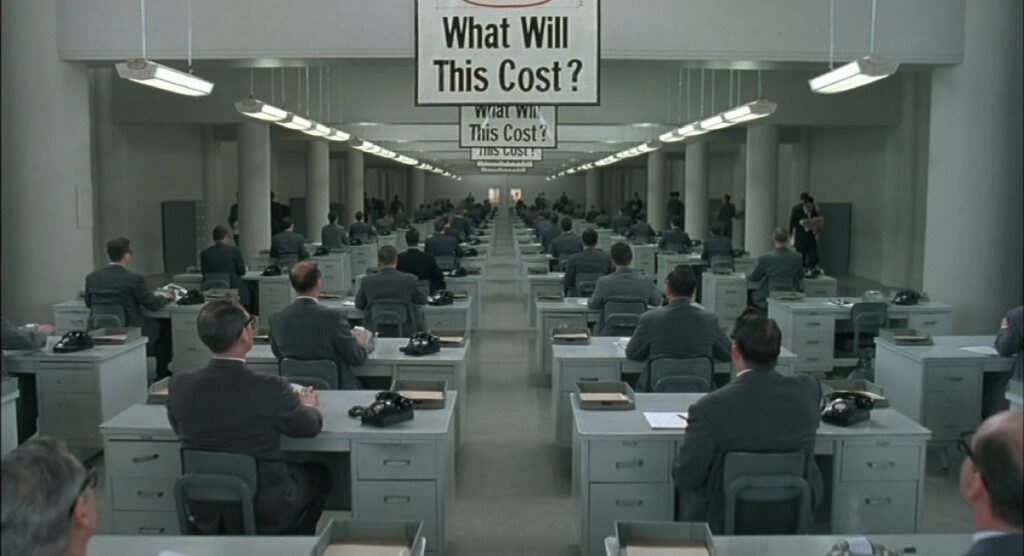The US government finally got its metaphorical hands on Do Hyeong Kwon, the 33-year-old Korean national who built a financial empire on the cryptocurrency Luna and the "stablecoin" TerraUSD, only to see it all come crashing down in a wipeout that cost investors $40 billion.
As private investors filed lawsuits, and as the governments of South Korea and the United States launched fraud investigations, Do Kwon was nowhere to be found. In 2022, the Korean government filed a "red notice" with Interpol, seeking Kwon's arrest and his return to Korea. A few months later, the Securities and Exchange Commission charged Kwon with fraud in the US.
On September 17, 2022, Kwon famously tweeted, "I am not 'on the run' or anything similar"—but he also wouldn't say where he was. He didn't help his case when he was arrested in March 2023 by the authorities in Montenegro. At an airport. With fake travel documents. On his way to a country with no US extradition agreement.
After serving some time in a Montenegro prison, Kwon battled extradition to both Korea and the US. This delayed the process by some months, but on December 31, 2024, he was shipped off to US authorities. Today, he appeared in front of a federal judge in New York City, where he pled "not guilty" to fraud.
The US Justice Department crowed about the extradition, with US Attorney General Merrick Garland pointing out that the US can sometimes get to people in surprising ways.
"We secured this extradition despite Kwon’s alleged attempt to cover his tracks by laundering proceeds of his schemes and trying to use a fraudulent passport to travel to a country that did not have an extradition treaty with the United States," Garland said in a statement. "This extradition from Montenegro is an example of the Justice Department’s international partnerships, which enable the pursuit of criminals wherever they attempt to hide."
Five alleged misrepresentations
As for the charges, the US also unsealed a massive indictment against Kwon today, which you can read here (PDF) if you want all the gory details.
The basic claim is that Kwon "defrauded investors by falsely advertising the company’s blockchain products as decentralized, reliable, and effective, and by engaging in market manipulation, ultimately resulting in more than $40 billion in investor losses," according to the US government. This, the government alleges, happened in five key ways:
- "The Stablecoin Misrepresentations: Kwon made misrepresentations about the effectiveness of the system that lay at the heart of Terraform’s cryptocurrency empire, the “Terra Protocol,” which purportedly used a computer algorithm to maintain the value of Terraform’s so-called “stablecoin” pegged to the US dollar, TerraUSD (UST), at a value of $1 for one UST. But as Kwon knew, after the Terra Protocol failed to cause the restoration of UST’s $1 peg in May 2021, Kwon reached an agreement with executives at a high-frequency trading firm (the Trading Firm) so that the Trading Firm would purchase large amounts of UST in order to artificially support UST’s $1 peg.
- The LFG Misrepresentations: Kwon made misrepresentations about the governance of the Luna Foundation Guard Ltd. (LFG), which Kwon claimed was managed by an independent governing body and was tasked with deploying billions of dollars’ worth of financial reserves to defend UST’s peg. But as Kwon knew, he controlled both the LFG and Terraform. In addition, Kwon misappropriated hundreds of millions of dollars in assets from the LFG.
- The Mirror Misrepresentations: Kwon made misrepresentations about the success and operation of an investing platform on Terraform’s blockchain (the Terra blockchain) called Mirror Protocol (Mirror), that purportedly allowed users to create, buy, and sell synthetic versions of stocks listed on U.S. securities exchanges. Kwon claimed that Mirror operated in a decentralized manner and that he and Terraform played no role in Mirror’s governance. But as Kwon knew, he and Terraform secretly maintained control over Mirror, and used automated trading bots to manipulate the prices of synthetic assets that Mirror issued...
- The Chai Misrepresentations: Kwon falsely claimed that the Terra blockchain was being used to process billions of dollars in financial transactions for the Korean payment-processing application Chai. In doing so, Kwon claimed that the Terra blockchain had “real world” applications or uses, as distinct from competing cryptocurrency platforms. But as Kwon knew, Chai processed transactions through traditional financial processing networks, not the Terra blockchain.
- The Genesis Coin Misrepresentations: Kwon made misrepresentations about the use of a supply of one billion stablecoins programmed into the Terra blockchain at its creation (the Genesis Stablecoins), which were purportedly held in reserve for Terraform for certain specified uses. But Kwon used at least $145 million worth of Genesis Stablecoins, among other things, to fund fake Chai blockchain transactions and trading bots to manipulate the prices of synthetic assets that Mirror issued."
Kwon is facing charges of commodities fraud, securities fraud, wire fraud, conspiracy, and money laundering.
























